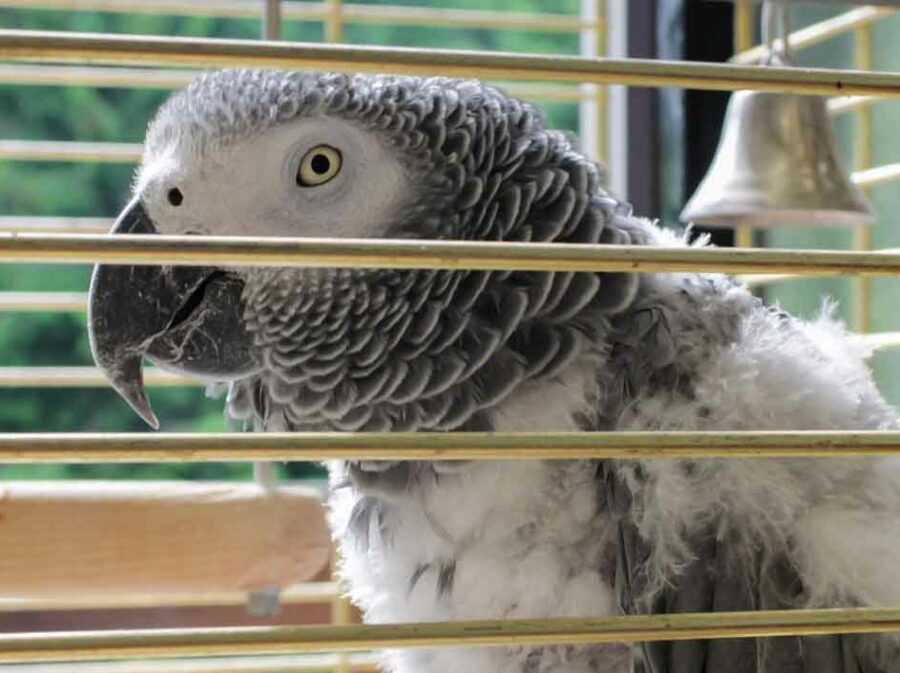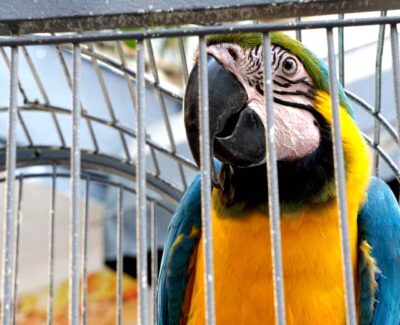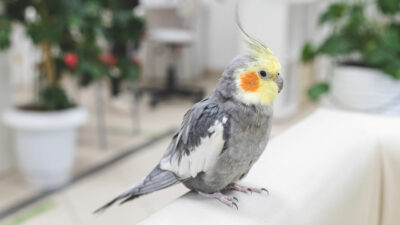
Common Health Issues in Pet Birds and How to Prevent Them
Owning a pet bird can be an incredibly rewarding experience—but as with any other pet, it carries many responsibilities, particularly when it comes to keeping your bird healthy and comfortable. Birds are masters at hiding illness, a survival trait that helps them avoid predators in the wild. As a result, by the time a bird shows visible signs of sickness, it may already be very ill. As a bird owner, therefore, it’s crucial to be proactive about avian care, understand common health problems, and take preventive measures to keep your feathered friend in the best possible condition.
Here are some common ailments among pet birds:
Respiratory Infections
Respiratory infections are among the most common health problems in birds. These infections can be caused by bacteria, viruses, fungi, or parasites and may affect the bird’s lungs, air sacs, or nasal passages. Symptoms include sneezing, wheezing, nasal discharge, labored breathing, and coughing.
To prevent respiratory infections, make sure that your bird’s cage is kept clean and free of excess dust. Good ventilation is important, as is avoiding exposure to smoke, aerosol sprays, and other airborne chemicals. Try to keep your bird in a room with a stable temperature, and avoid sudden changes in humidity. Regular check-ups with an avian veterinarian can also help catch early signs of respiratory problems before they escalate.
Feather Plucking
Feather plucking is a behavioral issue that may also indicate underlying health problems. Birds may pluck their own feathers due to stress, boredom, or frustration—but in some cases, feather plucking can result from a medical condition such as skin infections, allergies, or parasites.
Preventing feather plucking starts with creating an enriching environment for your pet. Birds, particularly parrots, need mental stimulation and physical exercise to prevent boredom. Provide a variety of toys, foraging activities, and time outside the cage for interaction. In addition, ensure that your bird has a well-balanced diet, as nutritional deficiencies can also contribute to plucking. If you notice that your bird has started plucking their feathers, it’s best to consult an avian vet to rule out medical causes.
Obesity
Obesity is a rising concern in pet birds, particularly in species that tend to be more sedentary, such as Amazon parrots and budgies. Overfeeding, or feeding your bird too many higher-fat foods and treats, can lead to obesity, which can cause additional health issues like fatty liver disease, respiratory problems, and an increased risk of heart attack or stroke.
To prevent obesity, be sure to feed your bird a balanced diet that includes adequate fresh fruits and vegetables. Providing your bird with regular exercise by allowing them to fly or engage in activities outside the cage is also essential to maintaining a healthy weight.
Psittacosis (Parrot Fever)
Psittacosis, also known as parrot fever, is an infectious disease caused by the bacteria Chlamydia psittaci. This illness can be transmitted to humans, making it a zoonotic disease. Symptoms in birds include lethargy, loss of appetite, nasal discharge, diarrhea, and difficulty breathing.
The best way to prevent Psittacosis is to maintain proper hygiene in your bird’s living environment. Clean the cage, perches, and toys regularly with bird-safe disinfectants, and support your bird’s immune system with a balanced diet. New birds should be quarantined before introducing them to your existing birds to prevent the spread of disease. Regular vet visits for check-ups and screening can also help detect and prevent Psittacosis.
Egg Binding
Egg binding occurs when a female bird is unable to pass an egg. This can be a life-threatening condition if not addressed promptly. Symptoms include straining, lethargy, swollen abdomen, and sitting on the bottom of the cage.
If you have female birds, ensure that they have adequate calcium in their diet to support egg production. This is particularly important for species that are prone to laying eggs, such as cockatiels. Providing a cuttlebone or calcium supplement may help. Additionally, make sure your bird is not under stress, as stress can contribute to reproductive issues. Regular vet visits are also essential for early detection.
Psittacine Beak and Feather Disease
Psittacine Beak and Feather Disease (PBFD) is a viral disease that primarily affects parrots. It attacks the bird’s immune system, leading to feather loss, abnormal beak development, and secondary infections. Unfortunately, PBFD is often fatal and has no known cure.
Preventing PBFD involves strict biosecurity measures. Quarantine new birds before introducing them to your flock, and avoid exposing your bird to environments where the virus might be present.
In striving to keep your feathered friend happy and healthy, taking steps such as investing in regular veterinary care, providing a balanced diet and mental stimulation, and ensuring a clean habitat are crucial. Looking for a qualified avian vet in your area? Check out our locator tool!




